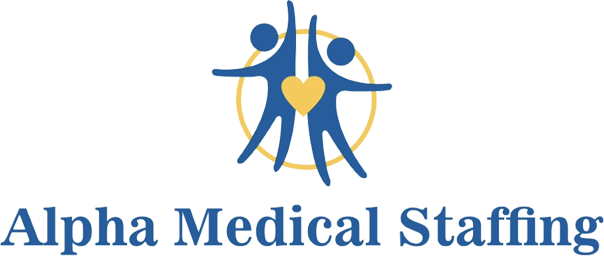These days, the healthcare sector is severely lacking in personnel. Consequently, you may be considering partnering with a medical staffing business in order to cover workforce shortages.
Now you’re wondering: How do medical staffing companies work? How do they get paid? Why should you use a healthcare staffing agency rather than hiring employees directly?
Here’s a brief introduction to the world of medical staffing companies.
Connecting Employees and Employers
Healthcare staffing companies link employers and top talent across a vast network. They employ recruiters whose job it is to find the greatest healthcare personnel in the nation.
If you own a medical practice, you most likely would like to invest your resources—money, time, and energy—in your patients. All of your employment needs can be met by a healthcare staffing company. To save you even more time, they can even conduct applicant interviews.
Certain medical staffing firms engage with workers who are open to moving. This implies that you are no longer restricted to your local area and may more readily acquire talent from elsewhere.
Screening Applicants
Healthcare staffing companies link employers and top talent across a vast network. They employ recruiters whose job it is to find the greatest healthcare personnel in the nation.
If you own a medical practice, you most likely would like to invest your resources—money, time, and energy—in your patients. All of your employment needs can be met by a healthcare staffing company. To save you even more time, they can even conduct applicant interviews.
Certain medical staffing firms engage with workers who are open to moving. This implies that you are no longer restricted to your local area and may more readily acquire talent from elsewhere.
Recruiting Talent
Staffing companies in the healthcare industry make a concerted effort to hire personnel from throughout the nation. It can be expensive and time-consuming to recruit. Hiring a medical staffing company to manage your recruiting needs could be quite cost-effective.
Large networks are typically available to healthcare employment organizations. This implies that they can locate competent employees in locations you might not even consider searching.
Filling Job Vacancies Quickly
Medical staffing firms frequently have a large pool of available pre-screened candidates. This helps you avoid wasting time looking for the ideal staff. You can expect a response from the medical staffing organization in a day or two.
Last-minute placements are a specialty of certain healthcare staffing companies. Is there a flu outbreak at your hospital? Nurses and other medical personnel can be dispatched by a medical staffing company to fill call-ins.
It’s also helpful to be able to fill a position swiftly in case of an unexpected employee loss. Holding up on recruiting a replacement can cause additional stress for your present employees. Reduce employee burnout by using a healthcare staffing firm to help you fill positions swiftly.
How do Medical Staffing Companies Get Paid?
Healthcare staffing firms usually charge a portion of the worker’s salary. This might be a 100% proportion.
How does this appear? Assume you recruit someone from a healthcare staffing service that charges a 50% fee, and you pay them $20 per hour. This implies that the worker will be paid $20 per hour by the agency and $30 per hour by the medical staffing company.
The agency may charge you a fixed fee in some circumstances, particularly if you are placed permanently. Usually, this fixed charge is demanded up ahead.
These costs could appear high. But you also need to figure out how much money and time you now spend on hiring new staff in the healthcare industry. It can be more cost-effective for you to hire a medical staffing company to manage the hiring procedure.
That charge sort of guarantees that you’ll work with good people. A lousy worker is practically worse than a vacant post.
Does Your Healthcare Facility Need a Loan to Pay a Medical Staffing Company?
Some medical staffing agencies may charge a fixed fee, but many take a percentage of the employee’s pay. This is particularly valid if they are trying to put you on a long-term basis. You are paying a medical staffing organization more than you would pay an employee, even in the absence of a flat fee.
To pay a medical staffing provider to meet your needs for healthcare professionals, you might require a loan in either scenario.










